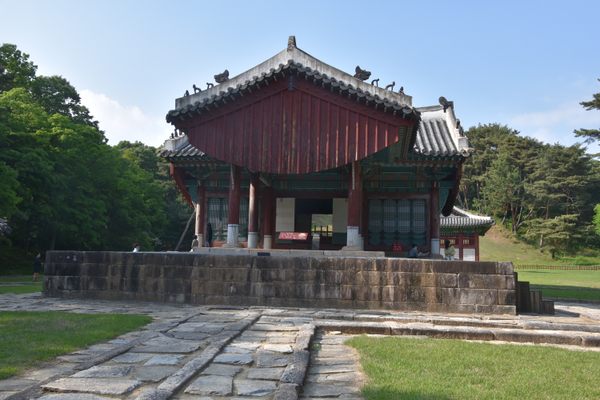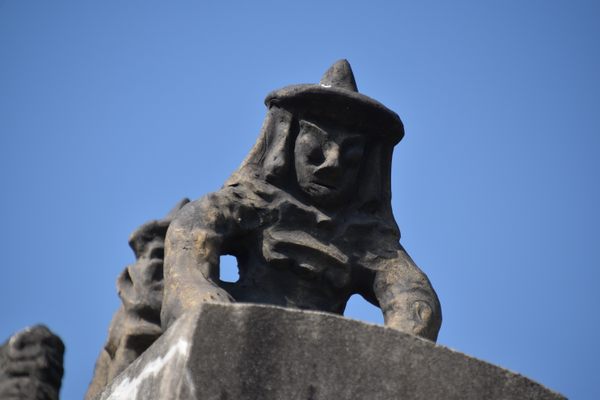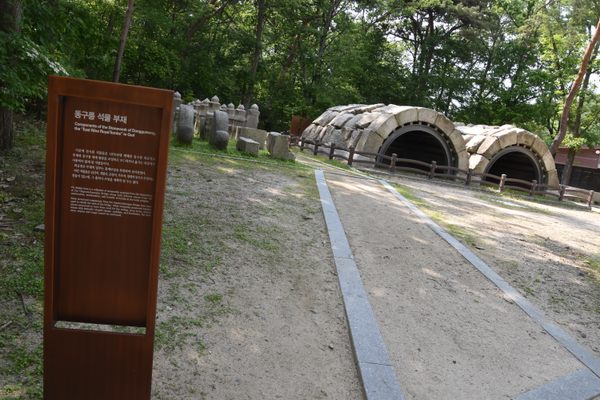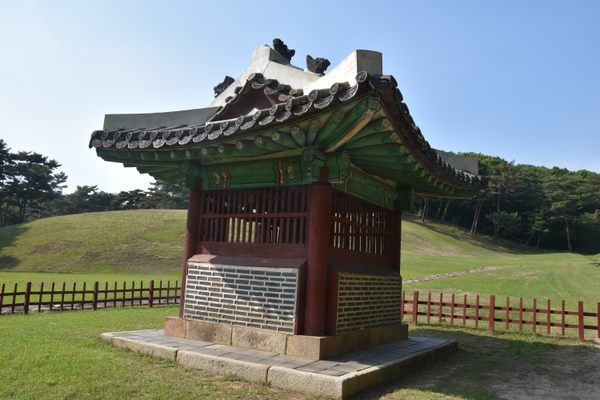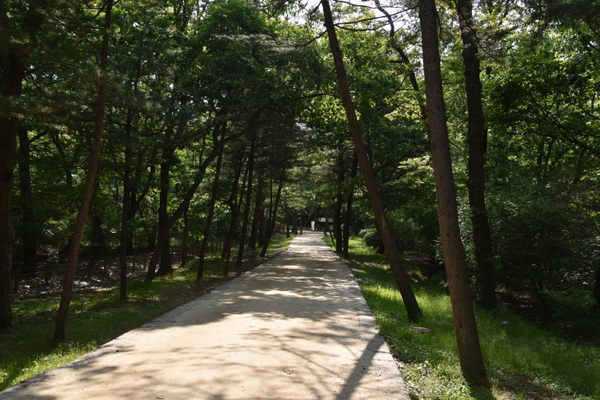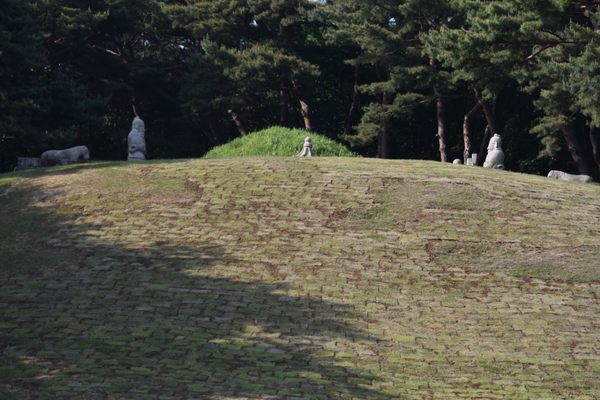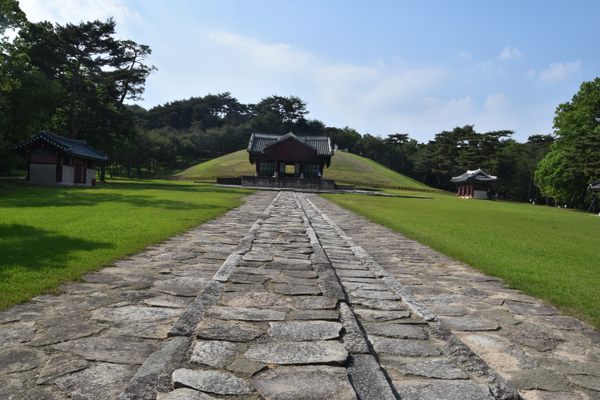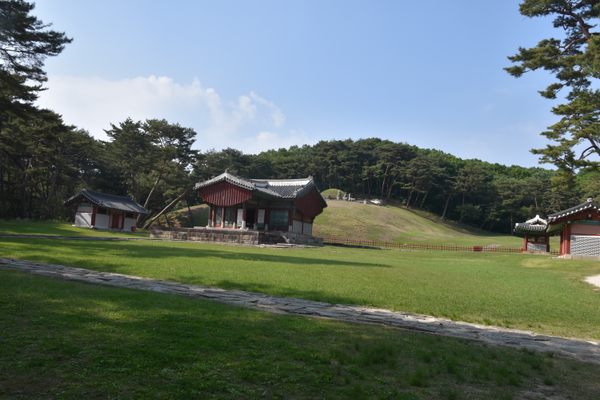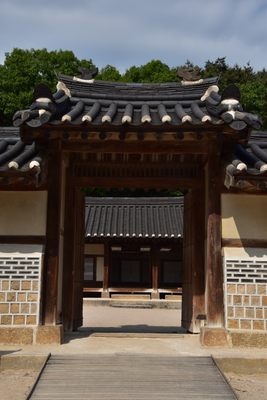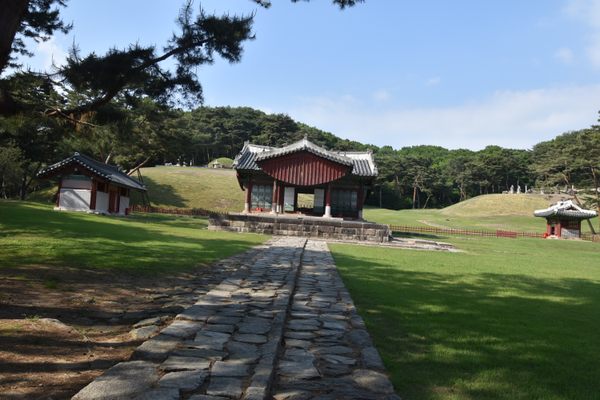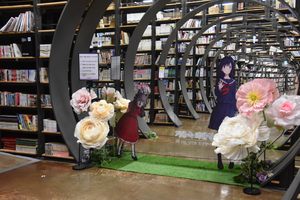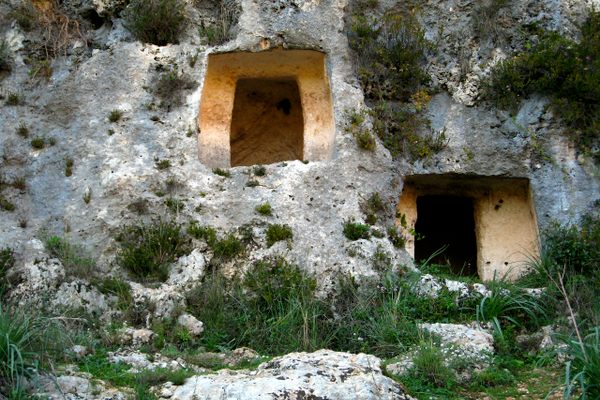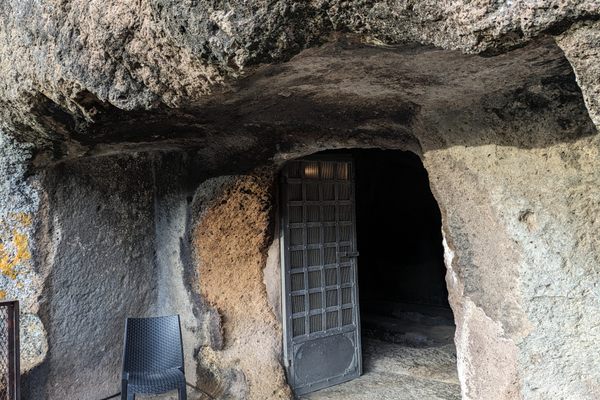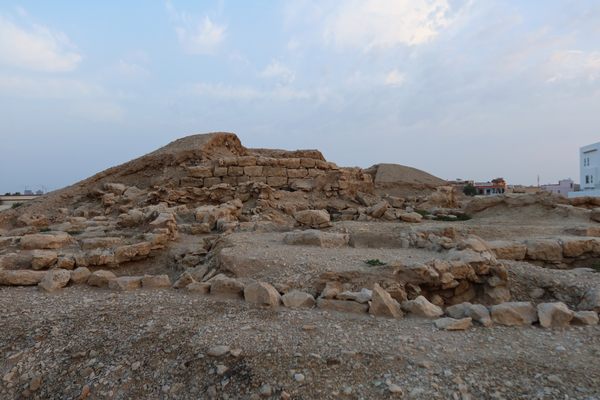About
The Royal Tombs of the Joseon Dynasty have been recognized as a UNESCO World Heritage Site since 2009. Built to honor the ancestors and to assert their royal authority, many of the tombs consist of a huge burial mound and several temples.
Scattered over 18 locations across the Korean Peninsula, it’s not easy to see everything in one go, but one location has a huge cluster of royal tombs. Located in the city of Guri, right outside the perimeters of Seoul, is Donggureung: The Nine Eastern Royal Tombs.
The largest royal burial site in South Korea, Donggureung (also transliterated as Dongguneung) is home to the resting places of 17 kings and queens of the Joseon dynasty, originally founded by the order of King Taejong in 1408.
The “nine tombs” consist of Geonwonneung (King Taejo, 1408); Hyeonneung (King Munjong and Queen Hyeondeok, 1452); Mongneung (King Seonjo and Queens Uiin and Inmok, 1600); Sungneung (King Hyeonjong and Queen Myeongseong, 1674); Hwineung (Queen Jangnyeol, 1688); Hyeneung (Queen Danui, 1718); Wonneung (King Yeongjo and Queen Jeongsun, 1776); Gyeongneung (King Heonjong and Queens Hyohyeon and Hyojeong, 1849); and Suneung (King Ikjong and Queen Sinjeong, 1890).
In addition to these royal tombs, with their red pavilions, burial mounds, and funerary statues, the Donggureung complex also contains Myeongbinmyo (the grave of King Taejong’s concubine), the caretaker’s house, and a small museum. Surrounded by a serene forest and typically not as crowded as other historic attractions in and near Seoul, it’s quite a lovely place; one major shortcoming, perhaps, is that you can’t get close to the main parts of the tombs, as all the mounds are fenced at the foot.
Related Tags
Know Before You Go
Be careful not to step on the central part of the path leading to the tomb, as tradition has it that it is meant for the ancestral spirits to walk on, not mortals. It might come off as insensitive and disrespectful.
Community Contributors
Added By
Published
August 8, 2023
